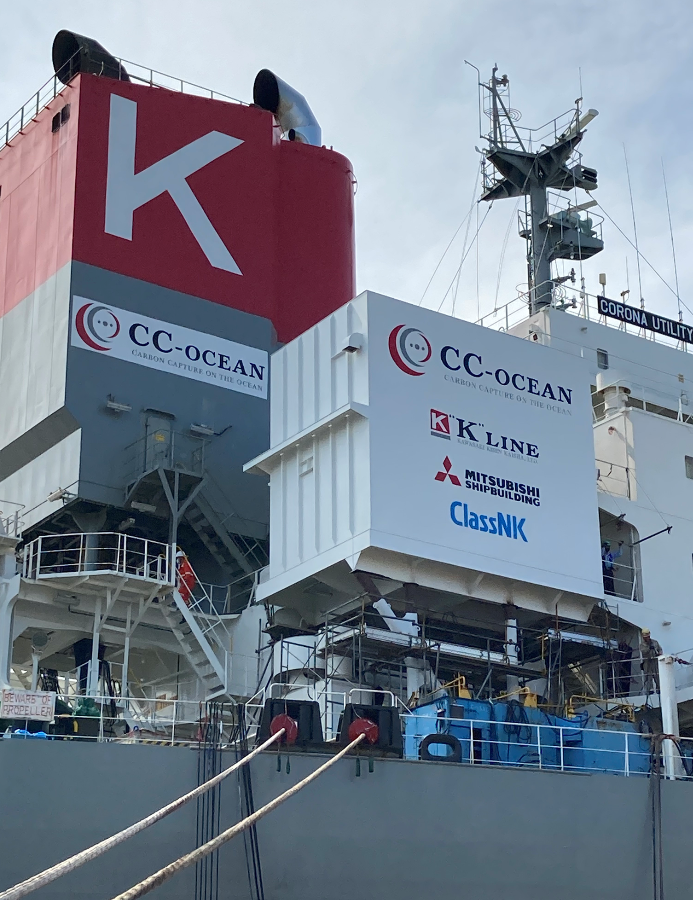
Carbon capture depends on economic case
New LR report indicates adoption of onboard carbon capture systems is dependent on the economic feasibility for maritime supply chain stakeholders
The Lloyd’s Register (LR) Maritime Decarbonisation Hub’s Zero-Carbon Fuel Monitor reports that “technology readiness of onboard carbon capture points to a potential route for reducing emissions and increasing vessel lifetime”. However, it asserts that although technology readiness is high, the formation of viable economic cases for each player in the supply chain is needed to scale up adoption of Onboard Carbon Capture Utilisation and Storage (OCCUS).
May 10, 2023
The research has found that technology readiness for OCCUS is significantly higher than its investment and community readiness, largely due to the development and usage of carbon capture technology outside of the maritime industry.
According to LR, to see the potential benefits of OCCUS adoption, the readiness assessment highlights that regulations will need to be updated to address the practical challenges, including carbon accounting and how OCCUS aligns with MARPOL regulations. There is also a need for significant infrastructure scaling and investment for onboard and offloading solutions to drive adoption. Additionally, safety and operational factors surrounding offloading of liquefied CO2 as a result of the carbon capture process need to be considered.
Outlining the need for an increase in investment readiness for OCCUS, the report concludes that evidence is required to validate the real-world performance of onboard capture technology, to ensure adopters can be assured of the technology’s emission reduction credentials.
LR’s research suggests the solutions could play a significant role in the shipping industry’s journey towards zero carbon emissions, with OCCUS considered as a mid-term ‘step’ for ship operators and owners. OCCUS technology has potential for existing vessels where conversion to zero carbon fuel is cost prohibitive, thus increasing the lifetime of an asset.
Charles Haskell, Director, LR Maritime Decarbonisation Hub said: “The maritime industry needs decarbonisation solutions that reduce emissions in the short to mid-term, and carbon capture can be a transitional tool for operators and owners to do this. LR Maritime Decarbonisation Hub’s research emphasises the need to focus on providing demonstrable evidence that OCCUS systems can help owners in meeting interim emissions regulations with existing vessels. The research also underlines the need for maritime supply chain stakeholders to come together, to ensure that the required infrastructure is developed and implemented to allow the industry to use the solutions which score high on technology readiness.”
LR has been contracted by the Global Centre for Maritime Decarbonisation (GCMD) to carry out a concept study into offloading liquefied CO2 as part of the carbon capture process, addressing the requirement for infrastructure and safety as part of the OCCUS process. LR has also been involved in a number of other carbon capture projects, including the Approval in Principle for Value Maritime’s Filtree system and Rotoboost’s pre-combustion carbon capture solution.
Nordic hydrogen production company Rotoboost’s pre-combustion Carbon Capture System (CCS) Rotobox uses thermocatalytic decomposition process (TCD) onboard ships. Part of the natural gas fuel supply is converted into hydrogen and graphite with a liquid catalyst. The TCD process significantly reduces CO2 emissions, particulate matter and methane slip by producing hydrogen while capturing carbon in its solid form. Rotobox is said to have the capacity to reduce overall carbon emissions by up to 100%, depending on the heating method used. Converted hydrogen from the CCS can be used for fuel cells or as blend-in fuel for combustion engines or gas-fired boilers.
ClassNK’s CO2 capture guidelines
ClassNK has released “Guidelines for Shipboard CO2 Capture and Storage Systems” which include a class notation for vessels equipped with CO2 capture and storage systems or designed as “ready” for their installation.
The Japanese classification society ClassNK is part of the Carbon Capture on the Ocean (CC-Ocean) project together with Mitsubishi Shipbuilding and Kawasaki Kisen Kaisha. According to ClassNK, the project has included the world’s first marine-based CO2 capture system on an actual voyage and it has been involved in the evaluation and verification of the entire project from a safety perspective.
Incorporating the experience gained, ClassNK’s guidelines cover an overview of shipboard CO2 capture and storage systems, including safety requirements related to the systems and their installation on the ships, and provisions for the notation indicating the vessels are equipped with such systems or designed as ‘ready’ for their installation.
ClassNK advises that, when utilising shipboard CO2 capture and storage systems, consideration should be given not only to additional equipment installation space, including for CO2 absorption units and CO2 storage tanks, but also for additional energy for heating the amine solutions and driving pumps. The guidelines’ appendix provides the methods for estimating both the dimensions of principal additional equipment and additional energy requirements.
Get in touch
Contact one of the World Bunkering team.
Constructive Media
Constructive Media
50 George Street,
Pontypool
NP4 6BY
Tel: 01495 740050
Email: ibia@constructivemedia.co.uk
On behalf of :
IBIA Ltd
107 Cheapside
London
EC2V 6DN
United Kingdom
Tel: +44 (0) 20 3397 3850
Fax: +44 (0) 20 3397 3865
Email: ibia@ibia.net
Website: www.ibia.net
Emails
Publisher & Designer: Constructive Media - ibia@constructivemedia.co.uk
Editor: David Hughes - anderimar.news@googlemail.com
Deputy Editor: Unni Einemo - unni@ibia.net
Project Manager: Alex Corboude - alex@worldbunkering.net
Terms & Conditions | Copyright © 2023 World Bunkering
